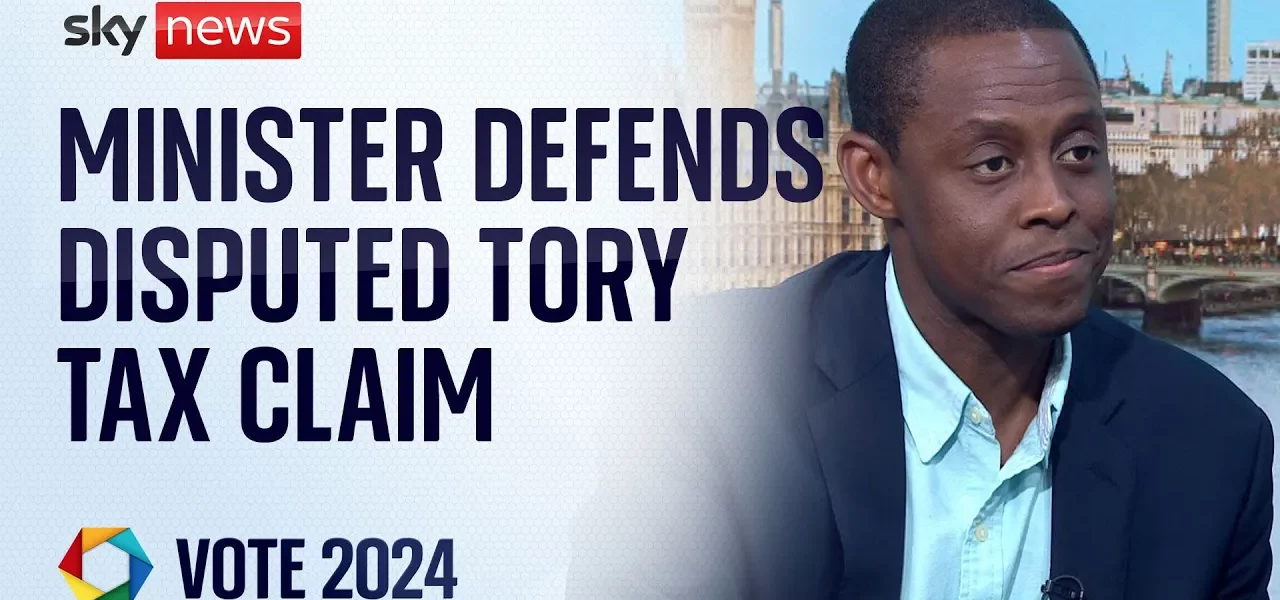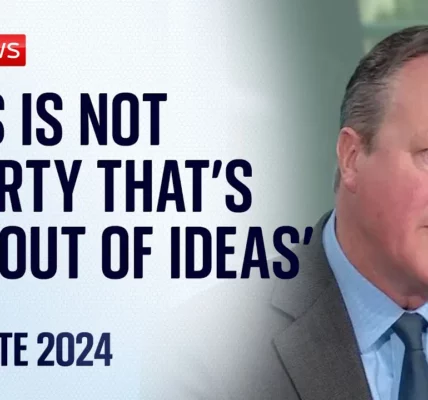The Importance of Political Debates: Rishi Sunak vs. Keir Starmer

This article delves into the recent political discourse between Rishi Sunak and Keir Starmer, highlighting the significance of debates in shaping public opinion and the electoral landscape in the UK.
Introduction to the Political Landscape
As the UK approaches a crucial election period, the political atmosphere is charged with debates and discussions that will ultimately influence voter decisions. The upcoming Sky leaders event in Grimsby, featuring Prime Minister Rishi Sunak and Labour leader Keir Starmer, is highly anticipated, especially after the contrasting performances observed in recent debates. Political debates serve as a platform for leaders to present their policies, challenge their opponents, and engage with undecided voters. This article explores the implications of these debates, the key issues at stake, and the responses from both political parties.
Importance of Debates in Political Decision-Making
The Role of Debates in Voter Engagement
Political debates are essential for fostering informed voter engagement. They provide a platform for leaders to articulate their visions and policies, crucial for undecided voters who are still determining their choices. According to recent surveys, a significant portion of the electorate relies on these debates to make informed decisions. Here are some key points regarding the importance of debates:
- Debates allow for direct confrontation of policies.
- They provide transparency and accountability from political leaders.
- Voters can assess the leaders’ abilities to handle pressure and articulate their points.
- They highlight differences in party policies, especially on critical issues like taxes and public spending.
Public Reaction to Recent Debates
Recent debates have garnered mixed reactions from the public. Many viewers felt that the exchanges between Sunak and Starmer were intense and revealing, while others criticized them for being overly aggressive. However, the consensus remains that these debates play a vital role in shaping public perceptions of each candidate’s competency.
Key Issues Raised During the Debates
Taxation Policies
A significant point of contention in the debates is the taxation policies proposed by the Labour Party. The Conservative Party claims that a Labour government would increase taxes by an estimated £2,000 per household. This assertion has sparked considerable debate, with various experts weighing in.
Analysis of Tax Claims
Critics, including figures from the Institute for Government, have labeled this claim as misleading. They argue that the tax increase figure is based on selective interpretations of Labour’s proposed policies. Here are some insights:
- Independent civil servants provided the majority of costings used by the Conservatives.
- Labour’s approach to taxation has been described as lacking clarity and detail.
- The debate over tax increases has become a focal point for voters concerned about their financial futures.
Spending and Economic Management
Another critical topic is the management of public spending and the implications of debt interest, which has been reported to exceed educational spending. The debate highlighted the contrasting economic strategies of both parties:
- The Conservative Party aims for a modest increase in public spending while reducing debt interest.
- Labour has been accused of being vague about their spending plans and how they would manage the economy post-election.
- Voter concern over rising costs of living continues to influence perceptions of both parties’ economic policies.
Voter Sentiment and Future Implications
The Rise of Alternative Parties
Recent polling indicates a notable shift in voter sentiment, with alternative parties like Reform UK gaining traction. This shift raises questions about the traditional two-party system in the UK:
- Many voters express discontent with established parties, leading to increased support for Reform UK.
- Concerns about the lack of clear policies from alternative parties may deter some voters.
- The traditional Conservative and Labour bases are increasingly vulnerable to fragmentation as dissatisfaction grows.
Looking Ahead: The Importance of Clarity and Vision
As both major parties continue to navigate the complexities of public sentiment, the need for clarity in policy proposals becomes paramount. Voters are looking for leaders who can articulate a vision for the future, particularly in uncertain economic times. The upcoming debates will be critical for both Sunak and Starmer as they seek to solidify their positions and appeal to undecided voters.
Conclusion: The Path Forward
In conclusion, the political debates between Rishi Sunak and Keir Starmer are more than just exchanges of rhetoric; they are pivotal moments that can shape the future of the UK. As voters prepare for the upcoming election, the importance of understanding party policies, especially concerning taxation and economic management, cannot be overstated. Engaging in these discussions will not only inform personal voting decisions but also contribute to a more robust democratic process. As we move closer to the election, it is essential for voters to critically evaluate the claims made by both parties and hold them accountable for their proposed policies. Stay informed, participate in discussions, and make your vote count!
“`




